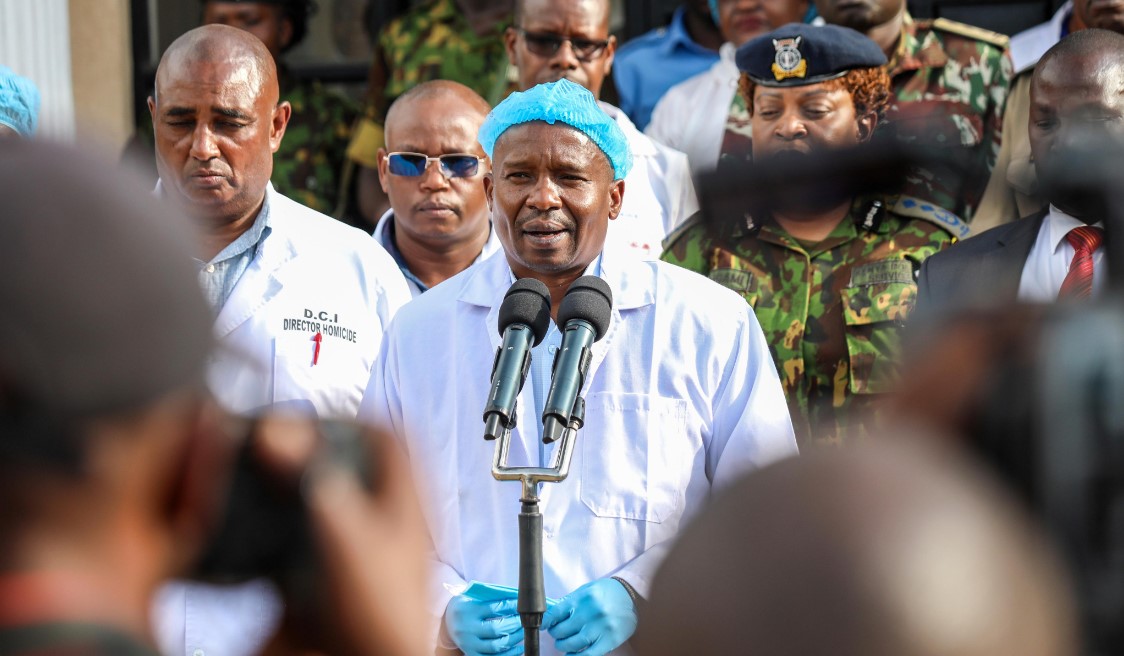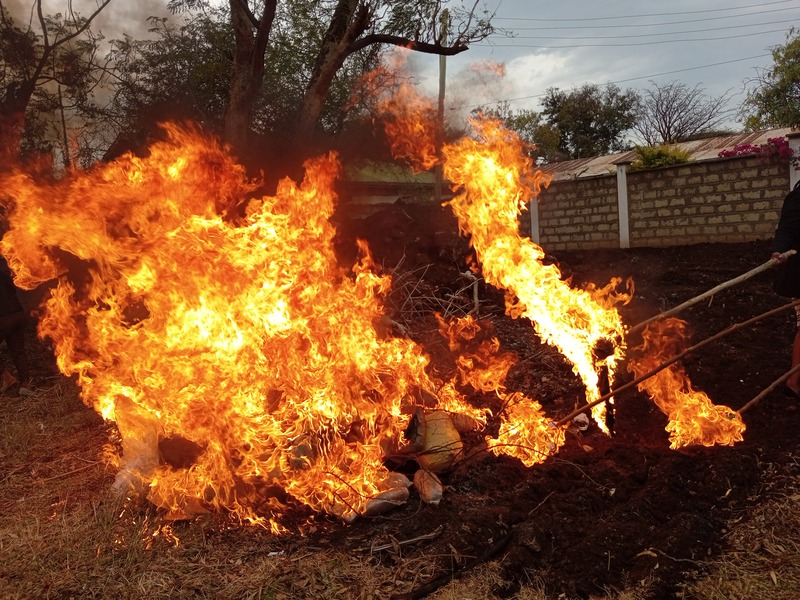Stop selling alcohol or quit your jobs, Kindiki tells civil servants

By Mary Wambui |
These include employees of the KRA, KEBS, the Anti-Counterfeit Authority and NACADA, as well as National Government Administration Officers, National Police Service officers, and public health officials.
It is now official. All civil servants in the enforcement and compliance chain who own bars or engage in the alcohol business, directly or indirectly, must close them immediately or quit their jobs with immediate effect.
Interior Cabinet Secretary Kithure Kindiki said the directive also falls on those whose businesses are engaged in the sale of legitimate products.
Keep reading
- Police probe death of man jailed for selling chang'aa who died in cells
- Kindiki tops list of possible DP Gachagua's successors amid impeachment - TIFA poll
- Kindiki insists evidence shows politicians were involved in anti-govt protests
- Kindiki directs county commissioners to oversee timely completion of State projects
"Any officer involved in law enforcement in an industry where they have business interests creates a conflict of interest, and therefore, one must give way, and it's upon the officers to choose," said Kindiki.
These include employees of the Kenya Revenue Authority (KRA), Kenya Bureau of Standards (KEBS), the Anti-Counterfeit Authority and NACADA, as well as National Government Administration Officers (NGAO), National Police Service officers, and public health officials.
The minister further asked leaders not to politicise the directive.
The Interior Ministry last week sent a memo to all NGAO officials informing them of the directive, adding that cross-referencing by the Public Service Commission and other agencies would be done to confirm compliance.
"Public officers are required to take note of the prohibition against conflict of interest as provided in Article 75 of the Constitution, Section 12 of the Public Officers Ethics Act, Section 16 of the Leadership and Integrity Act, and Section 42 of the Anti-Corruption and Economic Crimes Act," the memo stated.
The nationwide crackdown against illicit alcohol and drugs began on March 6, 2024, targeting manufacturers, traders, and transporters of illicit alcohol and drugs.
It began with the government suspending the licences of second-generation alcohol manufacturers for 21 days pending their fresh vetting and approval in line with the set health and safety standards.
The operation is clamping down on all unlicensed premises and destroying their capacity to manufacture poison to sell to the people of Kenya.
"We have continued to revoke all licences that were issued contrary to the national law, which demands that premises selling alcohol must not be close to educational facilities and [adherence to] other parameters provided in law," the CS added.
Additionally, the government last week pushed for the implementation of a new policy requiring officers who have stayed at their stations for more than three years to get transferred.
An audit revealed that the majority of the officers in that bracket are junior police officers, some of whom were reportedly abetting the manufacture, sale and transportation of illicit drugs.
The CS said 42,500 officers were found to have overstayed their jurisdictions and that more than 10,000 of them have since been transferred to other stations across the country.
"We are in consultations with the inspector-general of police to make sure the rest move within the shortest time possible as directed by the National Security Council," the CS added during a visit to Trans Nzoia County, where he met security and intelligence officials.
The crackdown follows the listing of the sale of illicit substances among the leading national security threats.
As a result, each county is expected to come up with an operational order to guide how officers handle the crackdown for their safety.
"I have asked each county to develop an operational order that will not allow officers to venture out alone while dealing with drug peddlers and traffickers," Kindiki said, citing unpleasant incidents where counties had not finalised the operational orders.
"These include the standard operating procedures for how to carry out these operations to make sure they are successful, our officers are not injured, and that we destroy not only the alcohol and drugs but also the capacity for their manufacture going forward."
Reader comments
Follow Us and Stay Connected!
We'd love for you to join our community and stay updated with our latest stories and updates. Follow us on our social media channels and be part of the conversation!
Let's stay connected and keep the dialogue going!
















